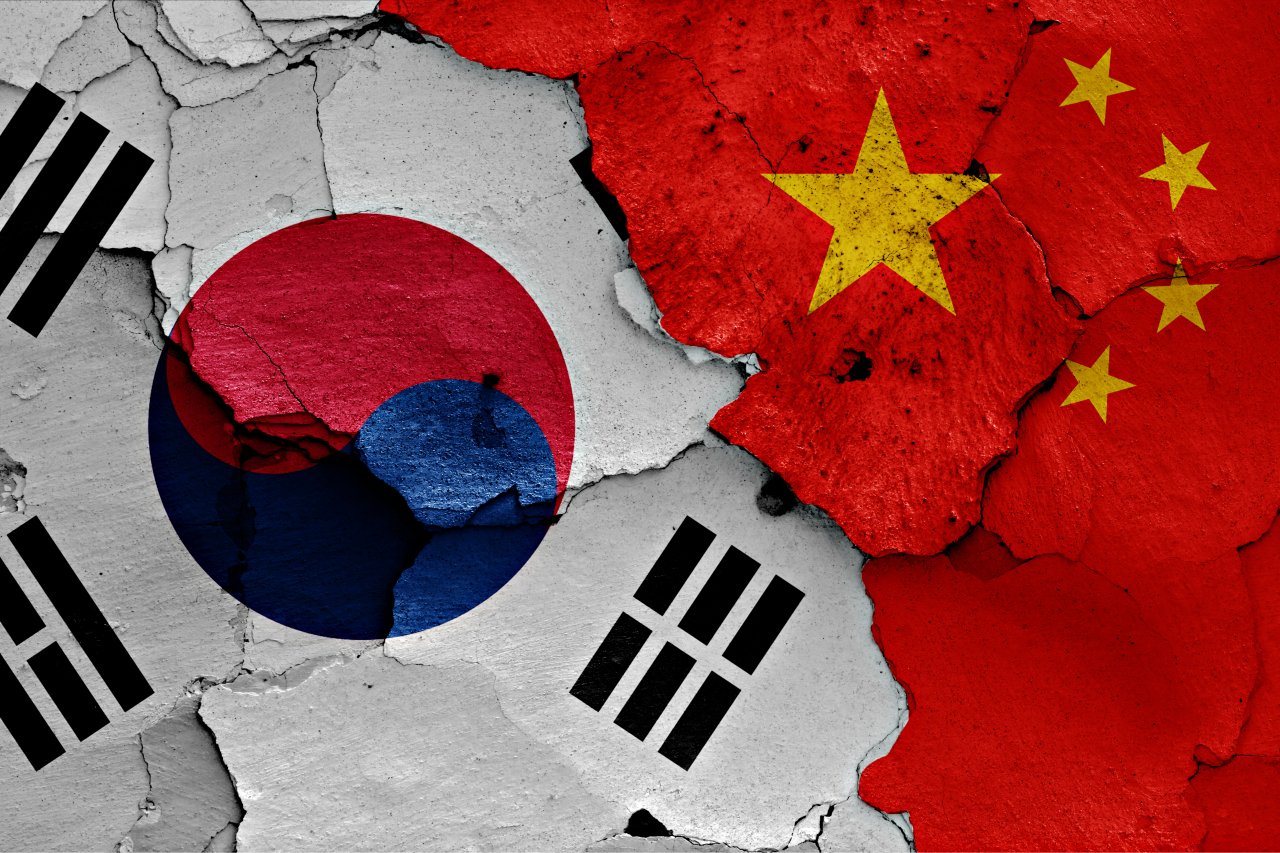
While South Korea and China celebrate 30 years of their diplomatic relationship this week, Koreans’ dislike for the neighboring country appears to be reaching its peak.
According to a survey of South Koreans by Hankook Research on Monday, China was the second-least popular country among five countries -- the United States, Japan, North Korea and Russia.
The survey asked 1,000 South Koreans aged over 18 from July 15 to 18 to rank their positive sentiment toward five major countries. The US was on top at 59 percent, followed by North Korea, which got 29.4 percent. Japan ranked third with 29 percent. Only 23.9 percent expressed good feelings for China, only 0.6 percent higher than Russia, the lowest at 23.3 percent.
In another survey conducted by US-based fact tank Pew Research Center, South Koreans were assessed to have a “historic high” dislike of China.
While the Pew survey explained the negative sentiment in South Korea had been witnessed in the past -- especially when Seoul decided to install the US-made Terminal High Altitude Area Defense anti-missile system on its soil in 2017, prompting a strong boycott of Korean goods by Beijing -- the level has gone up to reach a peak, with 80 percent of South Korean nationals expressing negative sentiment against China.
The Yoon Suk-yeol administration’s first ambassador to China Jung Jae-ho has said that the younger generations of both countries hold strongly unfavorable views against each other.
“The younger generations of Korea and China manifest a strong trend of mutual distrust. The antipathy is so strong that (the Koreans) refer to China as ‘communist China,’ and (the Chinese) refer to Korea as ‘South Joseon,’” Jung said in a press conference early this month.
“If we do not recover this antipathy, I am not sure where the future will lie for Korea and China’s relationship.”

Some of the major issues triggering anti-China sentiment include the clash over the traditional South Korean food kimchi (salted and fermented vegetables). In 2020, a claim that China has been awarded certification from the International Organization for Standardization for “pao cai” — a pickled vegetable dish from Sichuan — as the definitive version of kimchi sparked outrage among social media users and South Korea’s outspoken tabloid media.
There was also outrage here when China presented its flag bearer in the opening ceremony of the 2022 Beijing Winter Olympics wearing a hanbok (traditional Korean attire), in what was seen as an attempt to claim the attire as its own.
Chinese historical dramas on TV had also depicted hanbok as Chinese traditional clothes in past years.
Going as far back as 2005, the Chinese government claimed that the ancient Korean kingdom Goguryeo was a Chinese dynasty.
Aside from the cultural disputes, young people in Korea appear to hold more unfavorable views of the neighboring country than older people.
A survey by Research & Research conducted on 420 South Koreans aged between 20 to 39 from Thursday to Sunday showed China scoring the lowest on favorability.
In the survey, the US scored 6.76 points, Japan received 3.98 and North Korea scored 2.89. China came in last with 2.73.
On reasons for disliking China, 48.2 percent of all respondents chose the kimchi dispute among other possible answers in a multiple-choice format. Human rights abuse cases in China were also pointed out by 35 percent of the respondents. China’s infringement of Korean intellectual properties, China’s political system, and its THAAD-related economic retaliation against Seoul followed on the list.
Chung Jae-heung, a researcher at the Sejong Institute, said the COVID-19 pandemic has had a big influence in exacerbating anti-China sentiment in Korea.
“Due to the pandemic-led social distancing rules and quarantine measures, all kinds of exchanges between the two countries have obviously decreased,” Chung told The Korea Herald.
“More communication leads to better understanding of the differences the two countries may have, and the pandemic has come to create a barrier.”
Chung also said the Korean media has a tendency to exaggerate minority opinions in China and turn them into public debates here, which does not help bilateral relations.
“Those expressing strong antipathy against Korea do not represent the majority (in China),” he said.
Chung noted it is important to raise public understanding of the different political systems the two countries operate on, and to “objectively” assess each other’s actions and policies against that backdrop.
“Mutual antipathy will not be resolved by pointing out each other’s actions as faults, when they come from two different backgrounds,” he said.
By Jo He-rim (herim@heraldcorp.com)







![[KH Explains] Hyundai's full hybrid edge to pay off amid slow transition to pure EVs](http://res.heraldm.com/phpwas/restmb_idxmake.php?idx=644&simg=/content/image/2024/04/18/20240418050645_0.jpg&u=20240419100350)







![[From the Scene] Monks, Buddhists hail return of remains of Buddhas](http://res.heraldm.com/phpwas/restmb_idxmake.php?idx=652&simg=/content/image/2024/04/19/20240419050617_0.jpg&u=20240419175937)

![[KH Explains] Hyundai's full hybrid edge to pay off amid slow transition to pure EVs](http://res.heraldm.com/phpwas/restmb_idxmake.php?idx=652&simg=/content/image/2024/04/18/20240418050645_0.jpg&u=20240419100350)

![[Today’s K-pop] Illit drops debut single remix](http://res.heraldm.com/phpwas/restmb_idxmake.php?idx=642&simg=/content/image/2024/04/19/20240419050612_0.jpg&u=)